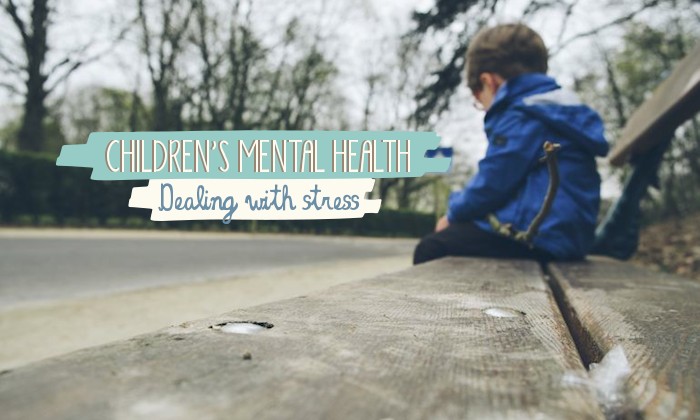
 Post Category - ParentingParenting
Post Category - ParentingParenting Post Category - Health & WellnessHealth & Wellness - Post Category - WellnessWellness
Post Category - Health & WellnessHealth & Wellness - Post Category - WellnessWellnessIn the past, the topic of mental health has always been a topic that many found difficult to talk about. However, the prevalence of cases in which children are diagnosed with a variety of mental health issues causes parents everywhere to take notice.
In general, Hong Kong is suffering from a worrying downturn in mental health. The city’s first mental health survey, conducted a few years ago, revealed not only concerning inadequacies with Hong Kong’s mental health services, but also a worrying upturn in mental health conditions across the demographic board. There are various reasons for this – rising rents, increasing work and social pressures, long hours…all of these contribute to Hong Kong’s chronic problem with stress, and the mental health issues which can incur. But surely these problems shouldn’t be affecting our children, or are they? As it happens, growing numbers of our children are showing worrying signs of suffering from problematic mental health. Why is this and what can we do about it?
Youth Mental Health
Surveys have revealed a significant decline in young people’s mental health which researchers describe as ‘distressing’. Increasingly, our youth are succumbing to illnesses like depression and anxiety. Concerningly, experts believe that the building blocks for such issues are laid in childhood. Conditions like Obsessive-Compulsive Disorder frequently form under certain conditions in childhood. If left untreated, such conditions can quickly become overwhelming and life-destroying, particularly when the afflicted child hits the physical and emotional rollercoaster that is puberty.
Given the severity of these illnesses, and the anguish that they can cause for those suffering, the fact that more and more of our children are falling prey to them should be a cause for great concern. However, partly due to stigma, a lack of awareness, and insufficient resources, the population of Hong Kong does not seem to be taking this situation nearly as seriously as it should. Why are our children suffering like this? And what can we do to help them?
Reasons For Mental Health Illness
Part of the reason behind the growing problem with mental health in our young people may well be the declining mental health of Hong Kong’s adult population. Children are immensely impressionable, and an atmosphere of stress and anxiety will easily transfer from adults to children. Devastatingly, we are essentially ‘teaching’ our children to develop mental illnesses through our own stress, depression, and anxiety. However, children also have problems of their own to contend with.
The academic atmosphere within Hong Kong is notoriously pressurised. So much so that the city’s system of primary school examinations has incurred criticism even from the ‘Tiger Moms’ of Hong Kong. Pressure to succeed in school, to be the best at everything, and to build skills via extracurricular activities is putting an enormous amount of pressure upon our children’s fragile mental states. What is more, some argue that restricting the time in which children can simply be children (without any pressure to ‘achieve’ or build specific skills) prevents them from developing essential social skills and psychological resilience, leaving them vulnerable to stress-induced mental illness as they grow up.
What Can We Do About It?
Firstly, in order to prevent mental health in your children, it is important that you take good care of your own mental health first. Not only will this prevent anxiety and stress from “rubbing off” on your kids, it will also enable you to parent in a manner more conducive to raising happy, healthy children.
Secondly, try not to put too much pressure on your children. While academic and extracurricular achievements can indeed help your child to get ahead in the world when they grow up, mental health conditions brought on by stress will have precisely the opposite effect. Give your children time in which to engage in unpressured play.
Thirdly, make sure that they get enough sleep. This can be problematic, as many children like to gaze into smartphones and game screens long into the night (which in itself promotes wakefulness), but if you can pry them away from their electronic devices and get them to sleep then the mental resilience they develop as a consequence of being well-rested will make it worth the effort!
Fourthly, watch out for signs of stress and depression. These may include (but are not limited to) mood swings, a loss of interest in the world, irritability, silence or sullenness, frequent exhaustion, unexplained crying, and even misbehaviour.
 View All
View All











 View All
View All





 View All
View All


 View All
View All










